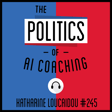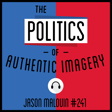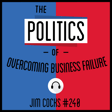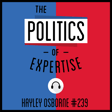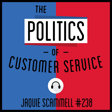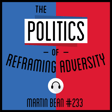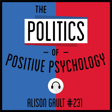
250: The Politics of Changing Humanity - Christopher Wright
AI is everywhere and has impacting how we as humanity do our work, build our communities and even how we relax. Do you think much about how tools like generative AI platforms from ChatGPT to Chatbots we use when buying products and services online are changing our existence? Today, as AI-based technologies become more pervasive, machines can augment our cognitive capacity and automate our complex decision-making process in new ways. This has dramatically changed the way we work, leading to the Fourth Industrial Revolution some say. Is this what we want or need? My guest Christ Wright is the CEO and founder of the AI Trust Council, is leading a crucial mission against corruption in big tech, government, and the risks posed by AI. With over 25 years of experience in entrepreneurship and the military, his unique background as a US Army Attack Helicopter pilot, Civilian Commercial Pilot, and CEO of several successful startups makes him adept at navigating complex challenges. As head of the AITC, Chris's commitment to positive change and forward-thinking approach are evident. He is dedicated to optimizing digital trust online and mitigating the potentially negative impact of AI. With his vision, Chris aims to revolutionise the way digital trust is built and maintained in the modern world.
In this show hear from Chris on:
1. How did AI first come to your attention?
2. What exactly is speciation, and how does it tie into the idea of changing humanity?
3. What are some of the biggest ways you observe our use of AI changing the way we operate as humans not just in a task-based way but as a functioning society?
4. How do you see AI being misused and does that need regulatory controls and laws to stay up with the pace of AI evolution locally and globally?
5. What do you predict will happen with AI and how we as humans accept or reject it will change in coming years? Right now it is all about exploring its potential.
Connect further:
(43) Christopher Wright | LinkedIn
Artificial Intelligence Trust Council (theaitc.com)
POE listener offer: Zencastr is my podcast platform of choice. Use my special link (zen.ai/thepoliticsofeverything30 [http://zen.ai/thepoliticsofeverything30]) and use code "THEPOLITICSOFEVERYTHING" to save 30% off your first three months of Zencastr professional. #madeonzencastr





